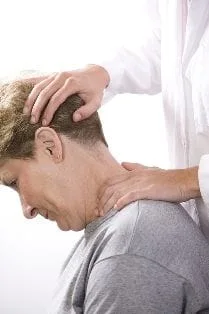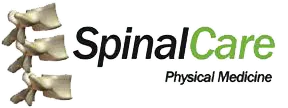
What causes whiplash?
Whiplash is a non-medical term used to describe neck pain that follows an injury to the soft tissues of the neck. It is caused by the sudden movement of the head backward, forward, or sideways and is usually the result of an auto accident, sporting activity, accidental fall, or assault.
The most frequent cause of whiplash is a car accident. Even speeds as low as 15 miles per hour can produce enough energy to cause whiplash. When a car is struck from behind or collides with another object, the head is suddenly jerked back and forth beyond its normal limits. This may cause the muscles and ligaments supporting the head and spine to be stretched or torn. Vertebrae can be forced out of their normal position and spinal discs may bulge, tear, or rupture.
Other common causes of whiplash include contact sport injuries and blows to the head from a falling object or from being assaulted. Strains of the neck from sudden changes in direction may occur from things like roller coasters, bicycle accidents or falls. Repetitive stress injuries or chronic strain involving the neck may also cause problems. Child abuse, particularly shaking a child can result in this injury as well as in more serious harm to the child's brain or spinal cord.
Warning signs that you may be suffering from whiplash
The symptoms of whiplash may appear weeks or even months after the trauma.
The symptoms include:
- Pain and stiffness in the neck, head, chest, shoulders, and/or arms
- Headaches
- Dizziness
- Pain in the shoulders, arms and hands
- Reduced ability to turn and bend
- Low back pain
- Tenderness along the back of the neck and shoulders
- Neck swelling
- Muscle spasms in the posterior cervical spine (back of neck), anterior cervical spine (front of neck), or in the trapezius muscles (back of shoulders)
- Difficulty flexing, extending or rotating the head
- Difficulty concentrating
- Sleep disturbances and/or fatigue
- Jaw tightness or difficulty chewing
Severe cases of whiplash may also cause vision disturbance, tinnitus (ringing in the ears), and other signs of nerve irritation.
Treatment of Whiplash
The physical medicine approach to these types of injuries is to use specific adjustments to help normalize spinal function. After a thorough case history and examination, the doctor will recommend a series of visits to help restore proper motion and position of spinal bones. If caught early enough, inflammation is reduced and scar tissue can be minimized.
The doctors at SpinalCare Physical Medicine commonly employ different physical therapy treatments for whiplash. These treatments often include:
- Cranial/Spinal Alignment
- Muscle Relaxation and/or Stimulation
- Various Exercises
- Ergonomic and Lifestyle Changes
Since injuries following a motor vehicle accident tend to affect many different tissues, a multi-pronged program is often necessary to achieve full recovery.
Cranial/Spinal alignments return joints to their proper motion and position, allowing your body to regain its lost function. This often relieves pain caused by inflammation trapped within the joints and reduces strain on tight and fatigued muscles. Cranial/Spinal adjustments are also effective in reducing pressure on "pinched" nerves and joint irritation often associated with headaches.
Muscle therapy following an auto accident injury is beneficial for reducing the pain associated with muscle spasms and is effective at preventing muscle inflammation from converting to scar tissue within the muscle - one of the prime contributions to chronic pain following and accident.
Ice, anti-inflammatory medications, painkillers and muscle relaxants can offer short-term relief, but do not address the source of the pain. Therefore the pain will continue to reappear if only treated with these temporary solutions. These methods only mask the symptoms and a regiment of therapeutic treatment is necessary as it allows for physical recovery from the injury.
